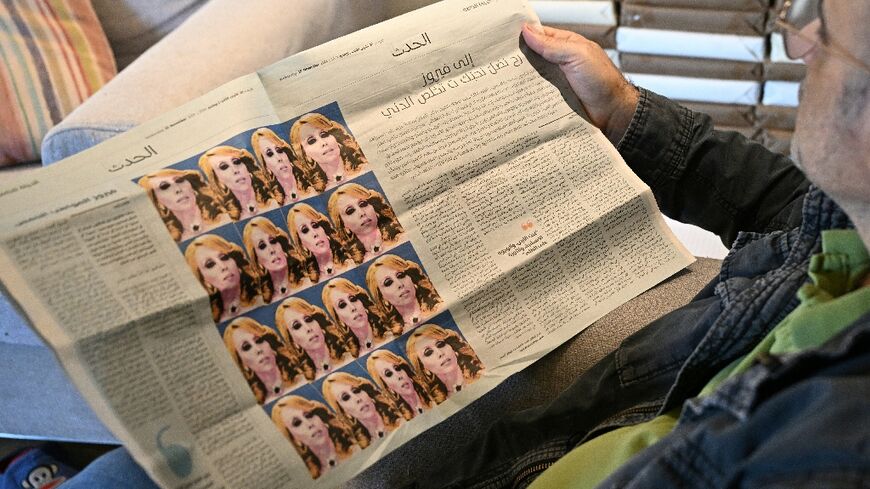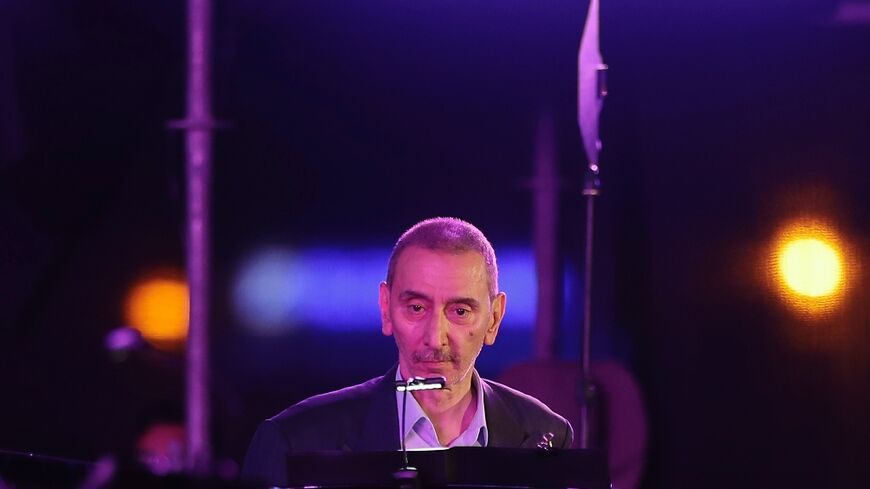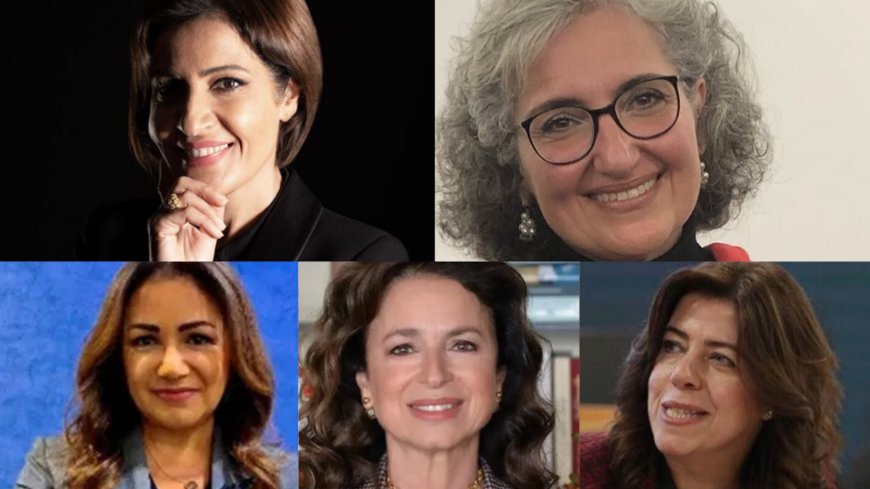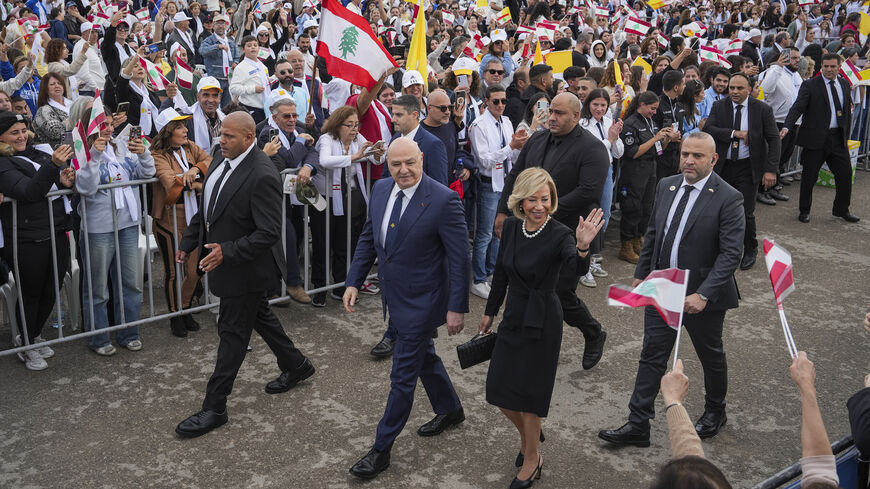In rare appearance, Fairuz mourns son Ziad Rahbani as Lebanon bids farewell
Legendary Lebanese singer Fairuz attended the funeral of her son, renowned composer and playwright, Ziad Rahbani, at a church in a town north of Beirut, in her first public appearance in years.
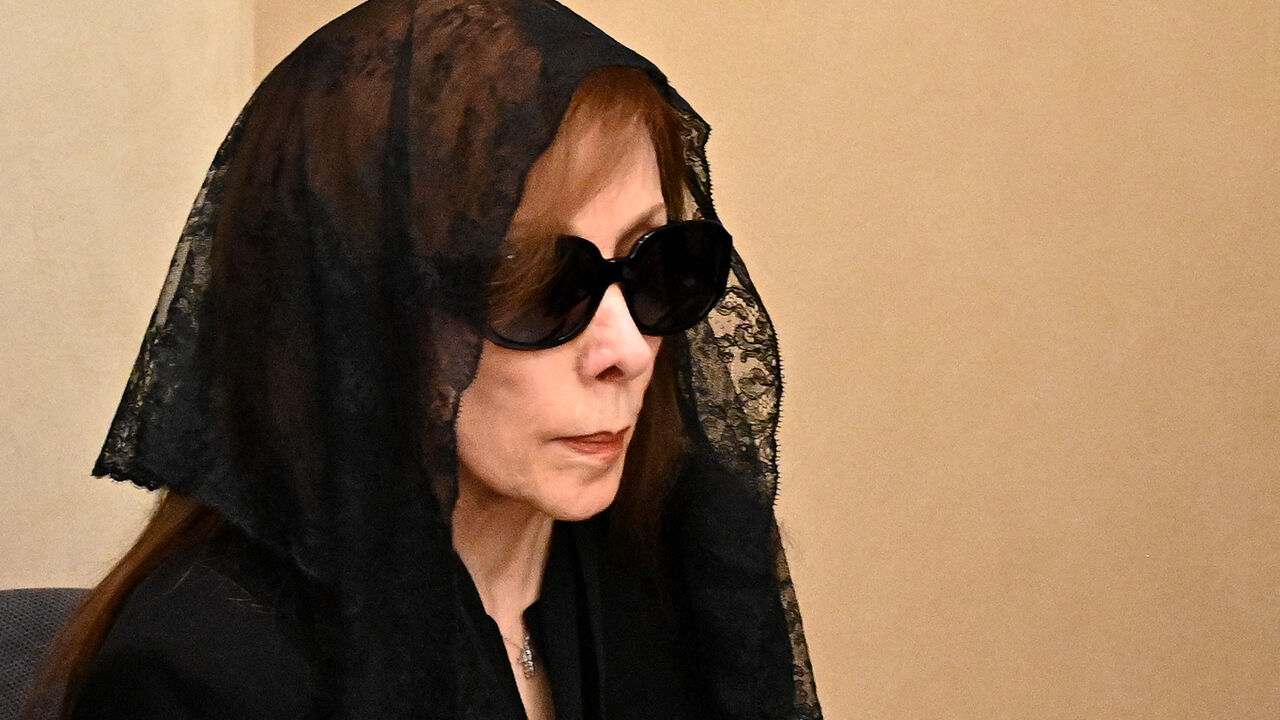
BEIRUT — Legendary Lebanese singer Fairuz attended the funeral of her son, renowned composer and playwright, Ziad Rahbani, at a church in Bikfaya on Monday, in her first public appearance in years.
Fairuz, 90, arrived at the Church of the Dormition accompanied by her daughter Rima and parliament member Elias Abu Saab. She got out of the car to applause from the crowd, then made her way into church as “Al-Oum al-Hazina” (“I am the Grieving Mother”), a religious hymn, played in the background.
With a black lace veil covering her signature red hair and wearing large black sunglasses, Fairuz sat in the church’s front row in silence as she mourned her son.
فيروز في وداع ابنها زياد
— Annahar النهار (@Annahar) July 28, 2025
Fayrouz bids farewell to her son Ziad pic.twitter.com/CMkcpqmolI
Born as Nouhad Haddad in 1935 to a modest family in Beirut, Fairuz — which means "turquoise” in Arabic — is one of the most influential and famous singers in the Arab world, dominating the Lebanese and Arab music scene since she was discovered in the early 1950s at the tender age of 14.
Known for her reserved personality and demure presence on stage, she shot to fame after her first performance at the Baalbeck International Festival in 1957. She then went on to perform in some of the world's most prestigious venues including Royal Albert Hall in London, Carnegie Hall in New York and the Grand Olympia in Paris.
Fairuz, with her iconic voice, is widely considered as a living legend and a national Lebanese treasure. Her songs, many of which were written and composed by her own son Ziad, continue to be played each morning across Lebanon.
But as her health deteriorated, she has been staying out of the spotlight. Her last concert dates back to 2012, when she performed at the Platea theater in Jounieh. In September 2020, the media covered her meeting with French President Emmanuel Macron, who visited her home in Rabieh. The French leader, who was in Beirut in the aftermath of the devastating Aug. 4 port explosion, awarded the signer with the Legion of Honor, France's highest order of military and civil merit.
#ماجدة_الرومي تنحني وتركع وتقبل يديْ السيدة العظيمة #فيروز في عزاء ابنها #زياد_الرحباني
— Elie Merheb (@_ElieMerheb) July 28, 2025
pic.twitter.com/gmAKtAgcrF
“I told her everything that she represented to me, of a Lebanon that we love and that many are expectant of, a nostalgia that many have,” Macron said at the time.
Fairuz married composer and musician Assi Rahbani in 1954 and together they had four children, including Ziad, who passed away on Saturday after a heart attack at the age of 69. In 1988, Fairuz lost another of her children, composer Layal, to a stroke. The Lebanese singer now lives with her son Hali, who was born with a mental and physical disability, and Rima, a photographer and film director.
Hundreds of people gathered at the church on Monday to attend Ziad’s funeral. Several artists, politicians and prominent Lebanese figures were also in attendance to pay their respects to Ziad.
آه يا فيروز،
— Léa 🇱🇧 (@LeaInTheFlow) July 28, 2025
شوفتك لحالها بدنا نحضّر نفسنا قبلها
فكيف شوفتك مع موت زياد
قلبنا انكسر مرتين 💔#فيروز #زياد_الرحباني pic.twitter.com/Deh287ypEi
First Lady Neemat Aoun, Prime Minister Nawaf Salam and his wife, Parliament Speaker Nabih Berri's wife Randa, fashion designer Elie Saab, singer Majida al-Roumi and many others were seen at the church hall offering their condolences to the Rahbani family before the funeral began.
مشوار زياد الرحباني الأخير في الحمرا...
— The Speech (@TheSpeechlb) July 28, 2025
موكبٌ مصفّح بدموع الناس وورودهم
لتفاصيل الكاملة على قناتنا على يوتيوب: TheSpeechLB
وعلى موقعنا الإلكتروني: https://t.co/A3aScdbGnC pic.twitter.com/tbCuW8HLmp
The Rahbani family and their works spanning over more than six decades have reshaped the local and Arab theater and music scene. Ziad in particular was a beloved figure among many Lebanese as his satirical takes on politics and sectarianism in Lebanon were a comfort to many throughout the Lebanese civil war (1975-90) and the successive crises in the country.

